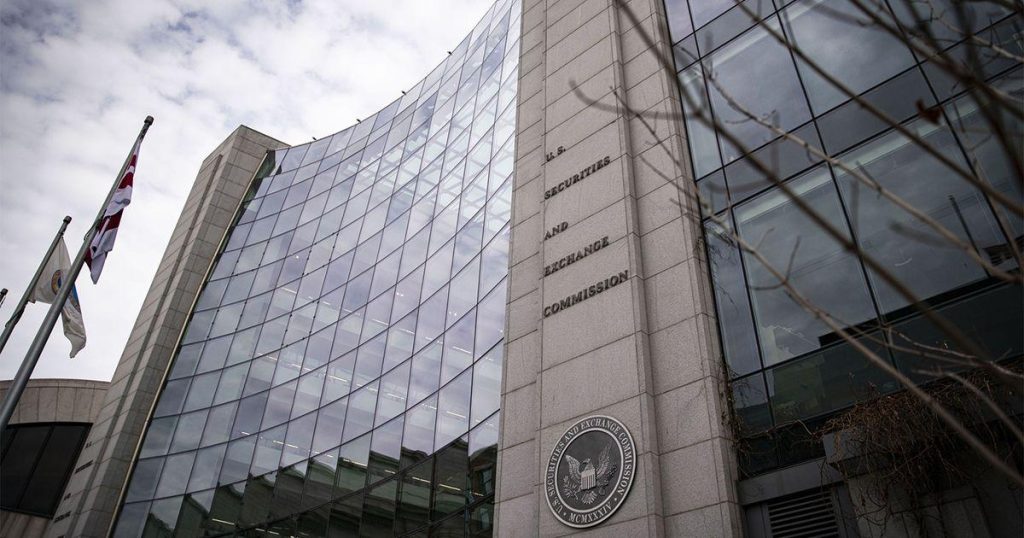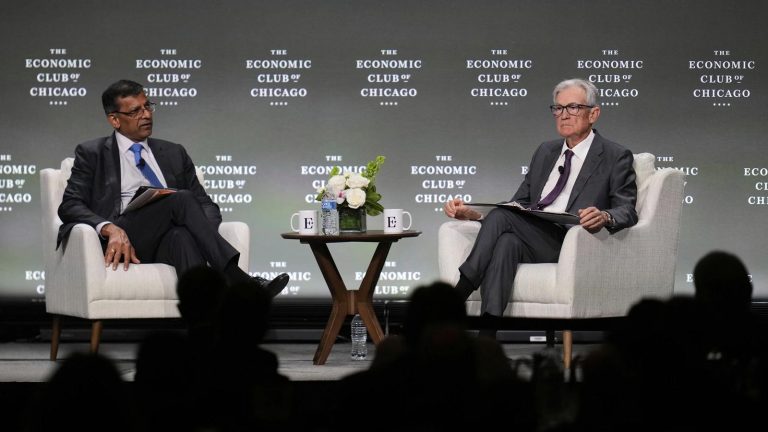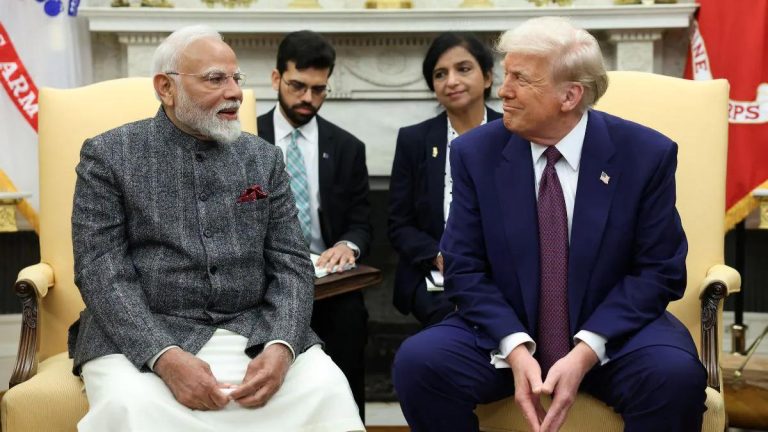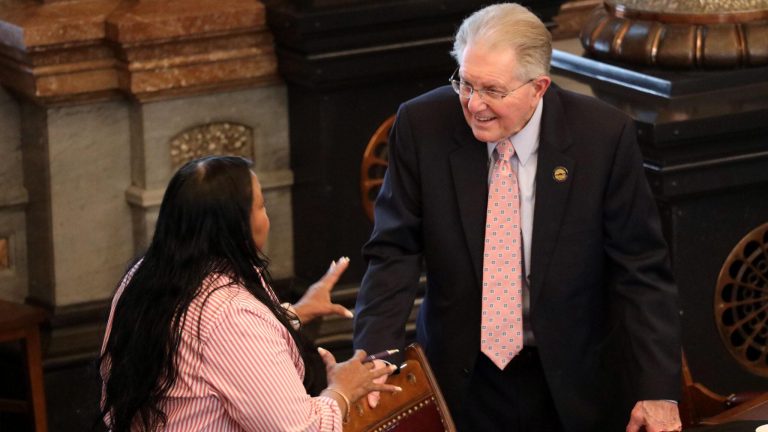
Ray Dalio Warns of a Financial Order Breakdown | Image Source: www.marketwatch.com
WASHINGTON, D.C., April 10, 2025 – As tensions increase again between the world’s two largest economies, one of Wall Street’s most experienced voices calls for a more strategic and measured approach. Ray Dalio, the billionaire founder of Bridgewater Associates, draws attention not only to the intensification of trade disputes between the United States and China, but also to what he considers a seismic change in the global financial landscape. His warnings are dark, his recipes point, and his tone – though full of hope – is dyed urgently.
According to Dalio, recent market turbulence and the sharp escalation of tariffs are symptoms of deeper structural imbalances in the global economy. While President Donald Trump’s recent 90-day delay in reciprocal tariffs (excluding China) temporarily calms investment nerves, Dalio suggests that these breaks are only a temporary reprimand. The underlying problem, he says, lies in unsustainable debt levels, currency misalignments and unfavorable confidence in financial institutions and geopolitical rules that have anchored global markets for decades.
What does Dalio think of Trump’s break?
Ray Dalio did not invent words about the need for a more collaborative solution to the trade war of the assembly. In public comments, including one post on X and interviews with CNBC and Bloomberg Television, Dalio described Trump’s 90-day delay in most new rates as “a worse step backward.” According to the CNBC, Dalio stressed that dialogue, not escalation, is the most effective way to resolve imbalances between the United States and China.
He suggested that a successful outcome would involve China in appreciating the renminbi (RMB) against the dollar, achieved by monetary increase and selective fiscal stimulus at the end of China, as well as the sale of dollar-denominated assets. This approach, Dalio said, would stimulate Chinese domestic demand while restoring a balance similar to trade flows, which he calls a “won” result for both nations.
“There are better and worse ways to manage our problems with unsustainable debts and imbalances,” Dalio wrote in X. “President Trump’s decision to go back in a worse way and negotiate how to deal with these imbalances is a better way.”
Why is Dalio worried about the world monetary order?
Beyond tariffs and monetary disputes, Dalio’s greatest concern lies in what he calls global monetary, political and geopolitical demands. According to Barron and Bloomberg, Dalio considers this moment to be similar in the context of the Great Depression or the collapse of the Bretton Woods, a fundamental revolt in the way in which power, capital and trade operate on a global scale. This is not limited to short-term market shocks; It is the erosion of confidence in the institutions and agreements that have governed world trade since the Second World War.
It highlights key indicators such as the decline in dollar value, the weakening of demand for US Treasurys and the reverse yield curve, in particular the 10- to 30-year bond ratio, as a sign that investor confidence in US fiscal prudence is declining. Concern is not only technical, it is philosophical. When investors start to doubt the security of what has always been safe, the whole premise of modern capital markets begins to tremble.
Is the world heading for a recession?
Dalio’s answer is an empathic yes. But it is clear that what awaits us will not resemble the typical economic crises caused by cyclical trends. On the contrary, as he said in his interview with Bloomberg, he believes that we are entering a new phase where systemic changes in debt and monetary systems will be inevitable. According to him, monetary policy is no longer a matter of tightening or relaxing; These levers lose their effectiveness. On the other hand, structural reforms are needed to address the serious financial and trade imbalances that threaten economic stability.
“This is not a normal recession,” said Dalio. ”We are changing the monetary order.”
He also suggested that the United States reduce its budget deficit to less than 3 per cent of GDP in order to restore the financial situation. But this, of course, is easier to say than to do. The political blockade, populist pressures and instability of the geopolitical climate make coordinated political change difficult, if not impossible, in the short term.
What about the Chinese Yuan?
Meanwhile, in China, the People’s Bank of China (BPOC) has allowed its currency, the yuan (RMB), to depreciate at its lowest levels since its creation in 2010. According to Bloomberg, the daily PBOC reference rate has been lower since September 2023. The offshore yuan, negotiated with less capital control, has caused historical casualties this week – putting more pressure on international foreign exchange markets.
Dalio believes that a more coordinated response is needed. Instead of letting the yuan move forward, which exacerbates trade imbalances and fuels protectionism in the West, Beijing must adopt policies that strengthen its currency while reviving domestic demand. This would not only attempt external tensions, but also help China cope with its own local government debt, which Dalio recommends to restructure and monetize to overcome the current overrun.
How do investors react to the market?
After a brutal four-day sale that saw the S sentientamp; P 500 falls by 12% and Treasury returns increase, Dalio says investors are still breaking into. He described the emotional state of the market as “trauma, shock and fear.” As Bloomberg said, these psychological effects are not temporary: they influence long-term investment behaviour, appetite for risk, and even the American economy as a refuge.
“It has significantly affected psychology and attitude about US reliability”
Dalio said. “It could have been handled better.”
For investors, the key is to reassess the portfolio strategy. Diversification and resilience are just buzzing words: they are needed in a world where markets can be locked up without warning. Dalio warns that another wave of volatility - perhaps worse than the last – is almost inevitable.
What could be the broader consequences of the trade dispute?
While the short-term effects of tariffs are visible on stock indices and bond markets, Dalio believes that the long-term consequences could be more harmful. It warns against an increased spiral: tariffs lead to increases in capital markets, which in turn increase liquidity, slow down business investment and trigger redundancies or failures. This self-strengthening loop can exacerbate crises and limit policy options.
In a worse scenario, such spirals could lead to capital flight, a depreciation of the dollar and a decrease in the external appetite for US debt, especially for countries like China, which still have large dollar reserves. While the United States cannot fund its affordable deficit, the impact on federal spending, interest rates and long-term economic growth is profound.
According to Dalio, decision-makers on both sides of the Pacific must go beyond tactical skirmishes and begin to address key issues. These include recalibrating the trade balance, restructuring the debt and perhaps even redefining the interaction between world currencies. The bets, he suggests, are nothing less than reconfiguring the financial system of the twenty-first century.
What should investors do now?
So, what is the trip for the daily investor or financial professional? Dalio promotes holistic thinking. Instead of reacting to each price holder, consider whether your portfolio is positioned for an era of greater volatility, inflation uncertainty and global fragmentation. safe and long-term shelters Treasures can no longer be so sure. Monetary exposure, commodity distribution and alternative investment should also be reassessed in the light of a changing monetary paradigm.
And as Dalio often remembers the disciples in his writings, history does not repeat, but rhymes. Investors could benefit more from studying the economic transformations of the 1930s or 1970s than from trying to model the next quarter’s income surprises. Because, in Dalio’s opinion, we are experiencing one of those rare times when everything depends on renegotiation, budgetary discipline, global leadership.
His last message is both philosophical and financial: In an increasingly unstable world, perhaps the greatest risk is not the market itself, but the assumption that tomorrow will be seen as yesterday.



